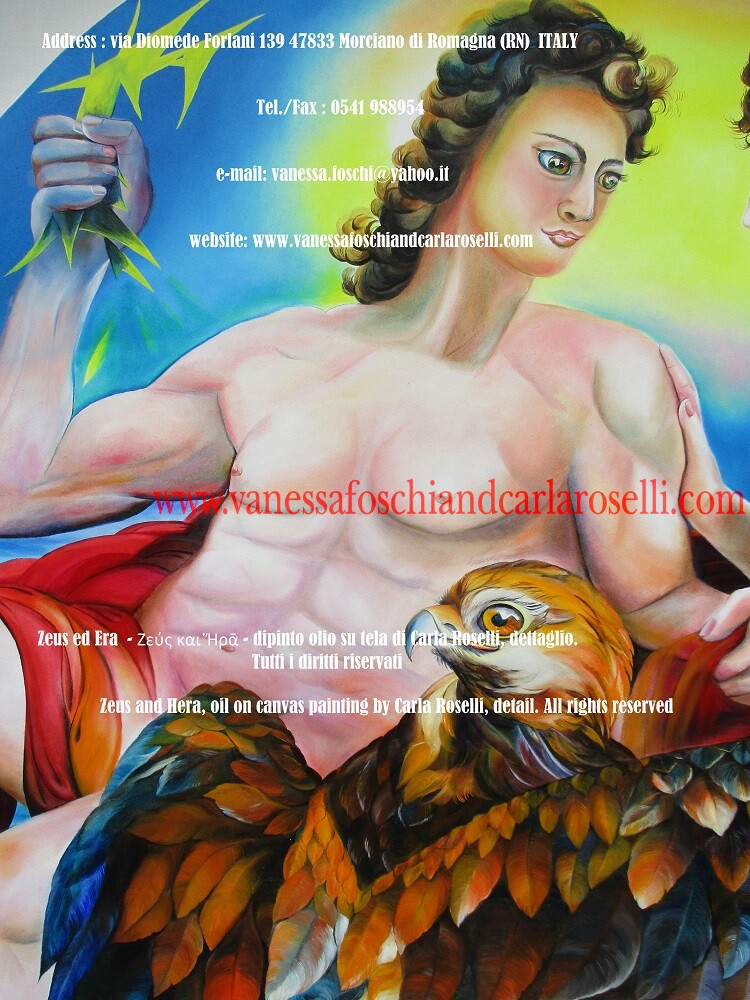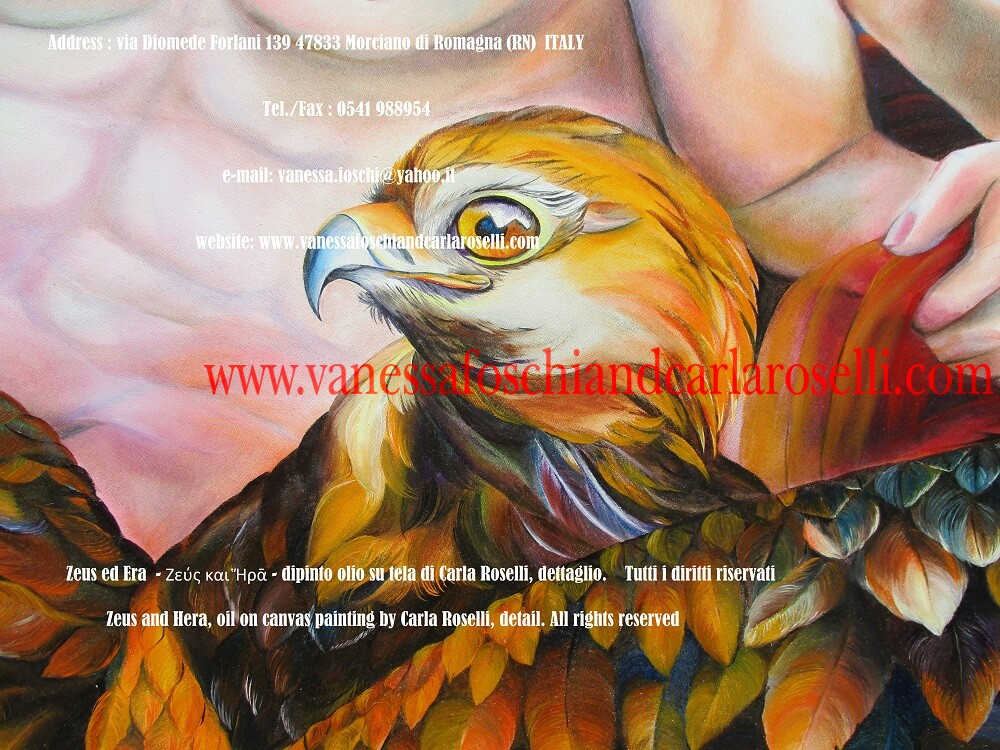Juno the great queen
Juno the great queen of the gods inspired painter Carla Roselli in this work.
Servius (Servii Commentarii in Vergilii Aeneidos libros, I, 4) defines Juno (Iuno) as the great goddess who benefits; he derives the name from the verb iuvo (giovo):
“cum a iuvando dicta sit Juno; saevam dicebant veteres magnam. Virgilius dixit eam saevam quod saevam dicebant veteres magnam”

The power and impulse of the goddess is explained in many areas: she had the appellation of Curitis because she used a chariot and rod; of Lucina because she presides over the coming into the light of men; of Regina because she walks queen of the gods (Servii Commentarii in Vergilii Aeneidos libros, I, 8):
“Iuno fine habet numina: est Curitis quae utitur curro et hasta; est Lucina quae partibus praeest, ut Iuno Lucina fer opem; est regina ut quae divum incedo regina”
As Virgil attests, she often loves to gird herself with arms (Servii Commentarii in Vergilii Aeneidos libros, I, 16).
That she had a chariot is certain, as is clear from the invocations to the goddess in the feasts and rites of Tivoli (Servii Commentarii in Vergilii Aeneidos libros, I, 17):
“habere enim Iunonem currus certum est. Sic autem esse etiam in sacris Tiburtibus constat, ubi sic precantur Iuno curitis your curro clipeoque tuere meos curiae vernulas”
According to Homer one of the favorite places where she left the chariot and the weapons was the beloved #Argus.
Livy remembers that a spear was kept in the temple of Iuno Sospita in Lanuviium (Titus Livius, Ab urbe condita libri, XXI).
Pausanias (Pausanias, Periegesis, Arcadia) relates a tradition that the goddess was raised in Arcadia, where she had three different temples.
GOLDEN APPLES OF THE HESPERIDES AND DRAGON
 When the wedding of Juno was celebrated all the gods brought gifts in her honor; the Earth gave birth in its most distant regions to a tree bearing golden apples; since the Hesperides, daughters of #Atlas or Hesperus, pick them off, the queen, feeling that her golden tree was being stripped, sent a sleepless dragon to guard its branches day and night. The dragon was then killed by Hercules and the apples were removed from them, in compliance with the impositions of Eurystheus; the hero had completed one of the twelve labors (Servii Commentarii in Vergilii Aeneidos libros, IV).
When the wedding of Juno was celebrated all the gods brought gifts in her honor; the Earth gave birth in its most distant regions to a tree bearing golden apples; since the Hesperides, daughters of #Atlas or Hesperus, pick them off, the queen, feeling that her golden tree was being stripped, sent a sleepless dragon to guard its branches day and night. The dragon was then killed by Hercules and the apples were removed from them, in compliance with the impositions of Eurystheus; the hero had completed one of the twelve labors (Servii Commentarii in Vergilii Aeneidos libros, IV).
Painted by Carla Roselli. Oil on canvas technique, diameter 120 cm. Written by Vanessa Foschi, June 2019. All rights reserved.
For more information contact us at the following e-mail address: vanessa.foschi@yahoo.it




